Broadband: Slow speeds risk 'excluding people from modern life'
- Published
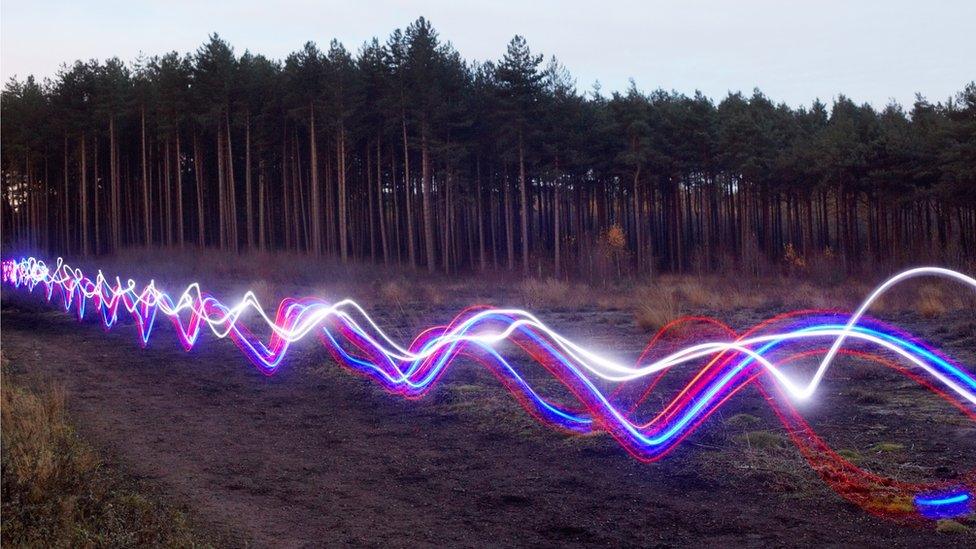
Internet speeds are still too slow for many in rural areas
The lack of high-quality superfast broadband in many parts of Wales risks "excluding people from modern life", a cross-party Senedd committee has said.
Despite recent upgrades, the report warns many people in rural areas still cannot access adequate internet speeds.
Committee chairman Llyr Gruffydd said everyone needed a high-speed connection and "this shouldn't be a luxury".
The UK government said it was spending £5bn to "make sure those hard-to-reach areas don't miss out".
Welsh ministers said they would continue to step in "to provide fast and reliable broadband connectivity to homes and businesses".
That cannot come quick enough for the villagers of Llanwddyn, near Lake Vyrnwy reservoir in Powys, who have been asked to collectively pay £300,000 by BT to install fibre broadband.
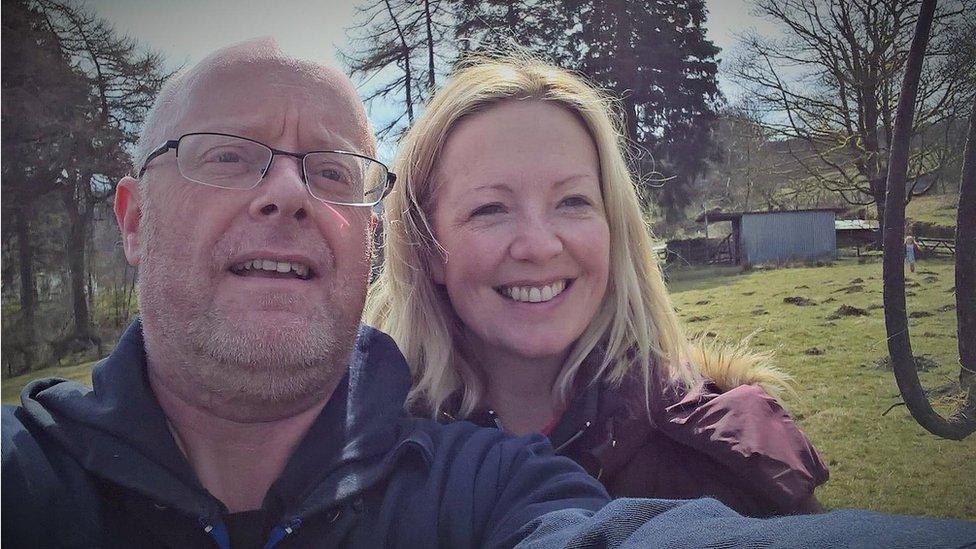
Mike Bottomley and his wife are being ask to contribute £10,000 for their village to get broadband
Villager Mike Bottomley told Radio Wales Breakfast download speeds were just one megabit per second, external (Mbps) "on a good day" which made working from home and home-schooling "impossible" during lockdown.
"There's no way myself, my wife and daughter can be online at the same time. One Mbps soon disappears," he said.
"It hasn't put us off staying in the area but broadband is now a utility and should be treated as such.
"Even if you don't want to play games or download movies, you need a good speed internet to do all the things you used to do on the high street, like banking. It has become a necessity."
What is superfast broadband?
The UK government defines superfast broadband as speeds greater than 30 Mbps.
Communications regulator Ofcom told the climate change, environment and infrastructure committee's inquiry that, while it is available in 96% of Wales, its figures put take-up at just 63%.
Ofcom said about 15,000 homes and businesses in Wales lacked a download speed of at least 10Mbps and an upload speed of 1Mbps.
Last year, UK ministers announced the first stages of plans to fund the installation costs of high-speed broadband to the more rural parts of the United Kingdom. A voucher scheme was also relaunched, external to provide more immediate help.
But Welsh government deputy climate change minister Lee Waters told the inquiry UK funding did not take into account the fact that Wales' mountainous geography meant there were more hard-to-reach properties.
Although broadband is the responsibility of the UK government, ministers in Cardiff had been providing extra cash for the voucher scheme in Wales, but stopped doing so four months ago.
Mr Waters said Welsh ministers "don't have the money" to spend "in areas where we shouldn't be spending money" and had been "letting the UK government off the hook".
The committee has called on UK ministers to raise the amount of money available for people and businesses "to close the gap".
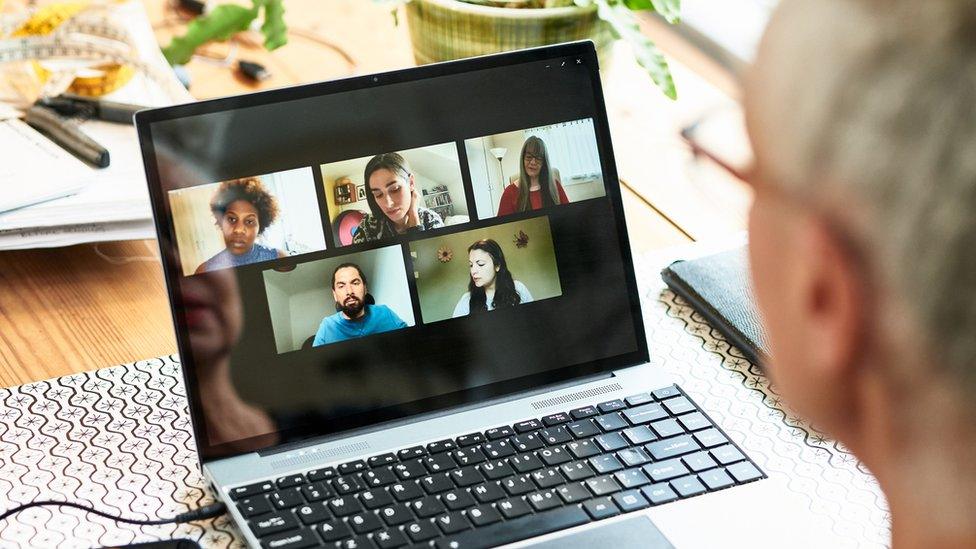
Working from home can be frustrating or impossible without fast broadband connections
People receiving benefits can use "social tariffs" from some providers, giving them cheaper superfast broadband deals, but the inquiry heard just 1.2% of those eligible have take them up.
The committee wants social tariffs to be promoted better, accessing them to be made simpler and automatic enrolment for those entitled to them to be considered.
Premises unable to get download speeds of 10Mbps and upload speeds of 1Mbps can ask BT for an upgrade under the Universal Service Obligation, external (USO).
BT is obliged to do the work if it costs £3,400 or less, but above that, the customers must fund the excess.
The committee said the USO had a "positive impact", but expressed concerns that people in the hardest to reach areas would have to pay so much above that threshold that it would be "simply unaffordable".
The report called for the level of the cap, which was set "before costs started to soar", to be reconsidered.
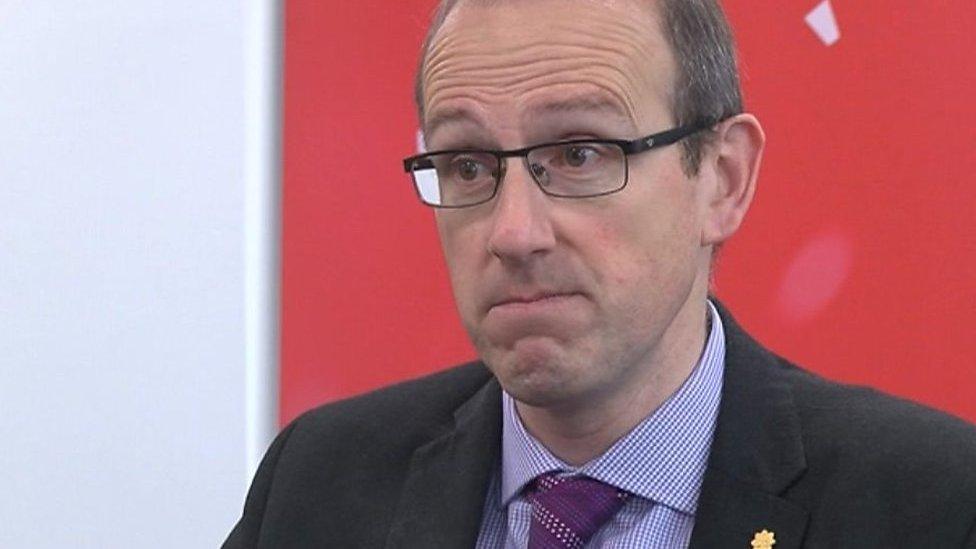
Llyr Gruffydd MS says it is unfair that many in rural areas have to put up with poor connections
Mr Gruffydd called progress on broadband in Wales "extremely disappointing".
"Especially since the pandemic, more and more of our lives are lived online and it's simply unfair that many in rural areas are expected to put up with sub-par, unreliable broadband," the North Wales Plaid Cymru Member of the Senedd said.
"Everyone in Wales, not just those in urban areas, should be able to access a high-speed internet connection. This shouldn't be a luxury.
"Many of the issues we examined are non-devolved, so we urge the Welsh government to take on board our recommendations and present the solutions in this report to the UK government - or the failures we see in this report will be repeated."
The UK government Department of Culture Media and Sport said: "Our £2bn investment in superfast broadband rollout means 96% of premises in Wales can access speeds fast enough for people's current needs, with over 70,000 premises in Wales already having gigabit broadband and over 35,000 more to be connected by the end of this year.
"We're working closely with the Welsh government to roll out Project Gigabit to even more premises and are spending a record £5bn to make sure those hard-to-reach areas don't miss out on faster gigabit broadband needed for the future."
The Welsh government said although responsibility for the roll out of faster broadband sat with UK ministers, it continued "to step in to provide fast and reliable broadband connectivity to homes and businesses".
"Our £56m full-fibre broadband roll out will see around 40,000 premises provided with access to gigabit capable broadband by March 2023," it added.

THE COMMONWEALTH GAMES: Colin and Mica's guide to the 2022 Commonwealth Games
LEGENDS OF WELSH SPORT: Game changers who changed their sports and their country

- Published1 December 2021
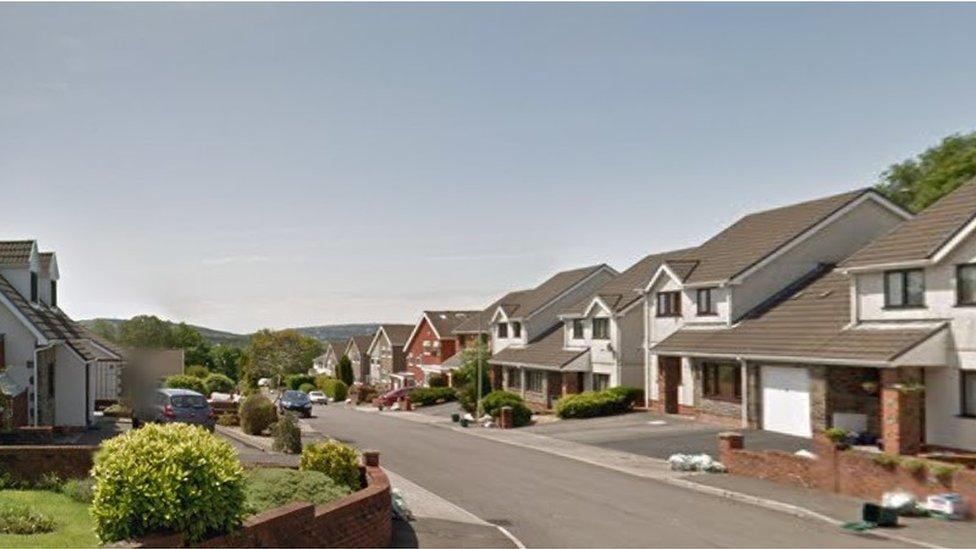
- Published16 December 2021
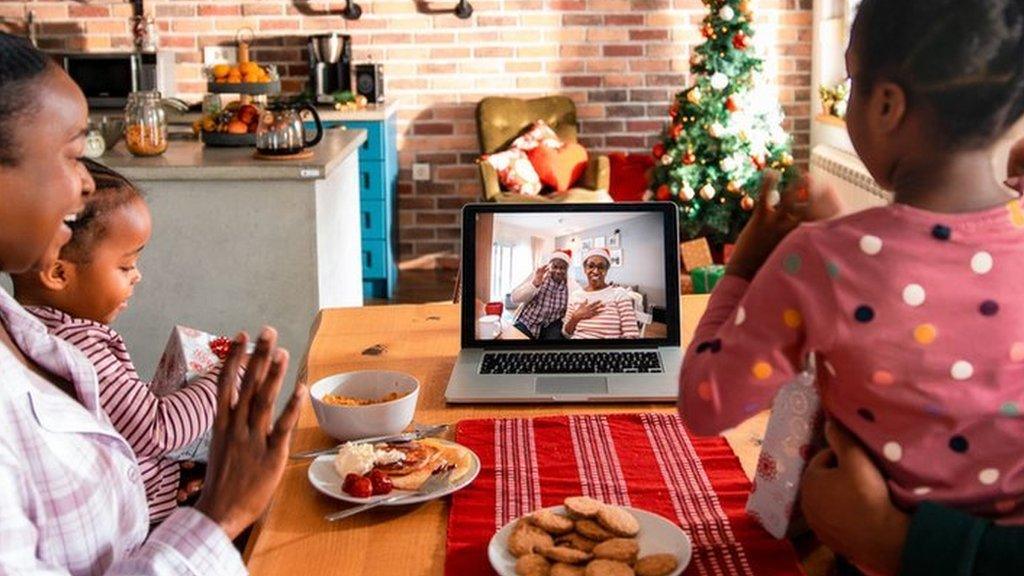
- Published6 March 2022
